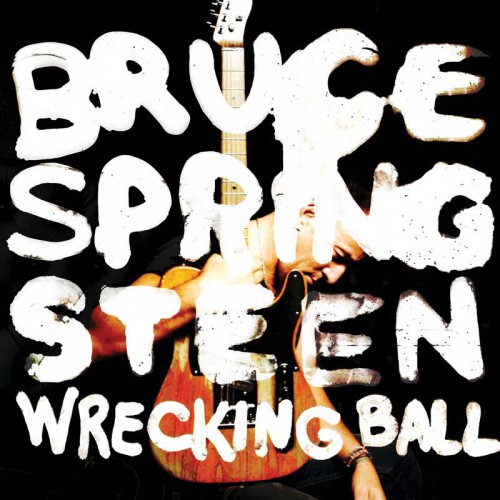
Wrecking Ball (2012)

1. We Take Care of Our Own
2. Easy Money
3. Shackled and Drawn
4. Jack of All Trades
5. Death to My Hometown
6. This Depression
7. Wrecking Ball
8. You've Got It
9. Rocky Ground
10. Land of Hopes and Dreams
11. We Are Alive
-Bonus Tracks-
12. Swallowed Up (in the Belly of a Whale)
13. American Land
By the time Wrecking Ball was released, Bruce Springsteen had settled into the kind of late-career plateau that finds even the greatest artists flirting with redundancy. While his latter studio albums were, by general consensus, “solid,” none had quite reached the seismic heights of his canonical work. The recurring criticism—persistent and not entirely unjustified—was that Springsteen, once the anthemic voice of working-class hope, had grown morose, overly didactic, and stylistically cautious. Not exactly the hallmarks of rock & roll dynamism.
So when advance word came that Wrecking Ball was among his “darkest” albums yet, groans were understandably audible. Another moral treatise? Another grim roll-call of economic disillusion and national disrepair? The anticipation was hardly ecstatic. And then the album landed.
To the surprise of many—and the delight of some—Wrecking Ball, while undeniably grave in subject, turned out to be musically invigorating. Not just invigorating, but, in places, genuinely rollicking. The opening track, We Take Care of Our Own, with its Rising-era snarl and punch, re-establishes Springsteen as a man capable of both topical commentary and melodic immediacy. Shackled and Drawn and Easy Money thump and swagger with a looseness rarely heard since The Seeger Sessions. Even Death to My Hometown, with its title lifted from the bleakest of headlines, rattles like a marching band on a pub crawl—its Celtic brio almost daring the listener to dance through the rubble.
The tonal inconsistency—sometimes energetic, sometimes elegiac—is part of the appeal. There is grandeur in Jack of All Trades, even if it flirts with pathos; there is gospel-infusion and spoken-word experimentation in Rocky Ground, which, though slightly left of center, never feels gratuitously experimental. The thematic throughline, a grim vision of a betrayed American promise, is constant—but it's stitched through diverse, and often surprisingly exuberant, musical textures.
And then there’s Land of Hope and Dreams. Though hardly a new composition—it had been a live staple for over a decade—its studio incarnation here is nothing short of triumphant. Far from a filler, it emerges as the album’s emotional and musical anchor. Springsteen manages to make the familiar sound immediate again, and in doing so, subtly reminds us why his work matters.
Not everything connects. This Depression is as joyless as its title, lacking even the sonic interest to sustain its gloom. And Swallowed Up (In the Belly of a Whale) might test the patience of all but the most devout completists. As for American Land, its inclusion here (after previously surfacing as a bonus track elsewhere) is puzzling and redundant—less a statement, more a reprise.
Nevertheless, Wrecking Ball stands as an unexpected late-career triumph. Springsteen, at a point where many of his peers have long since faded into irrelevance or pastiche, proves himself again as a craftsman and commentator. Not quite as memorable as his glory years, perhaps—but far more vital than expected. And, in the end, very well played indeed.
Go back to the main page
Go to the next review